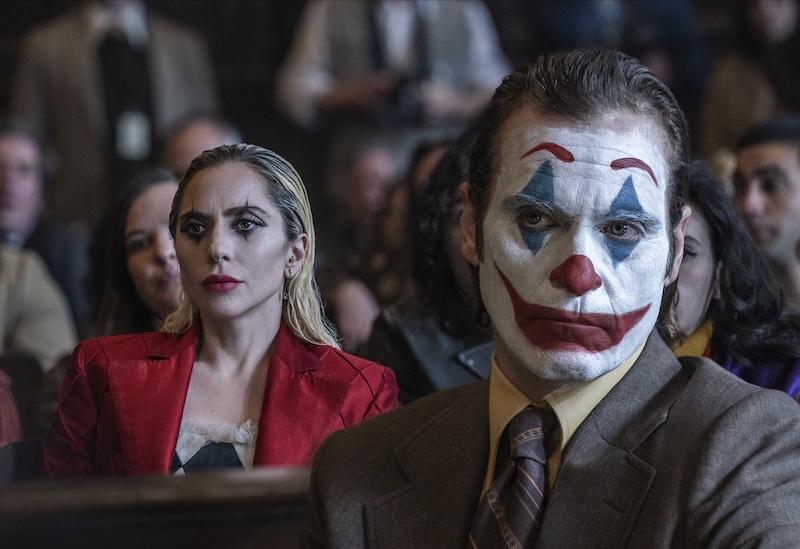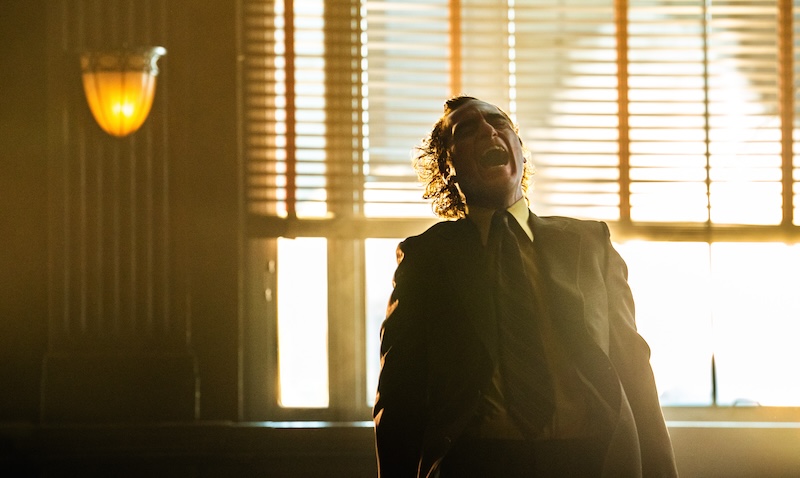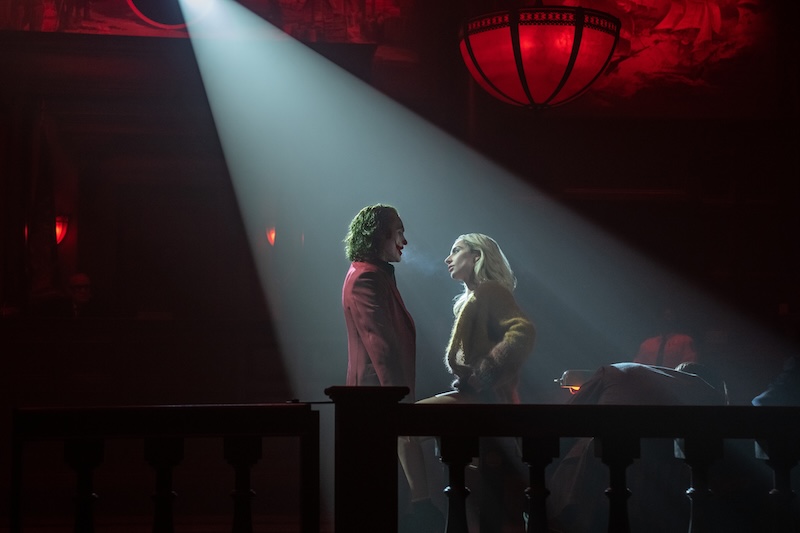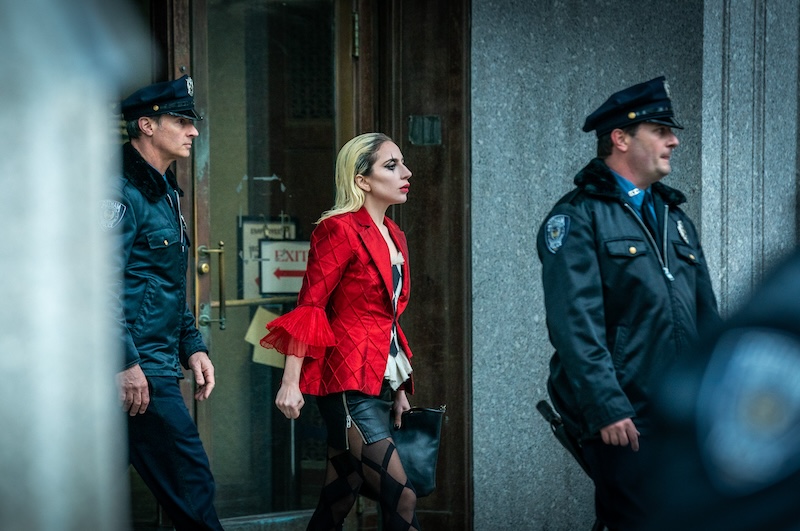What's On in conversation with: Joaquin Phoenix and Todd Phillips
“If everything is entertainment, what is entertainment?”
Joker: Folie à Deux tap dances into UAE cinemas on Thursday, October 3. It’s the continuation of the story of Arthur Fleck (Joaquin Phoenix), a man out of pace with – and unable to fully understand – the world he exists in. A character figuratively, and occasionally quite literally, wrestling with his own shadow… Joker. Joaquin Phoenix won an Academy Award for his portrayal of the killer clown in the first movie (2020), and this sequel expands on that success in some phenomenally cinematic ways.
You’ll be able to read the full review from Thursday, but ahead of the movie’s release – we can share some insight from two of the guiding stars of this project. First up there’s the extraordinarily talented titular lead, Joaquin Phoenix, and I can borderline guarantee, future Oscar-winning director Todd Phillips.









joker-folie-a-deux_i6ulp7
JK2_NT_230222_0750273.dng
JK2_NT_230209_0555621.dng
JK2_NT_230325_1115433.dng
This is what the pair had to say when we caught up with them in London ahead of the film’s launch.
Joaquin Phoenix, Arthur Fleck/Joker
WO: We see Arthur take a different direction in this movie. He’s tackling some big things in interesting ways. What dimensions of his character were you most excited or most keen to explore this time around?
JP: Something that’s quite serious in this film is the struggle of ‘what is Arthur and what is Joker?’ And this idea of these images that we project about ourselves.
The inspiration for that was, was just because I was sitting around with Todd and it probably came from me on the first one being like 45 years old and putting this makeup on and I’m doing all this stuff. And then I started thinking about the band, Kiss or Slipknot maybe – bands that dress up with real theatrical makeup.
And when you’re 20-years-old and you’re sitting with your friends and you’re like, ‘hey let’s dress up and play in a band’ and it suddenly becomes popular and then at some point, you’re in your 40s, and you’re putting on these platform boots… and I just started laughing. At some point, it must suck, but what about the people that have fallen in love with this character that you created?
I think that sparked one of the initial ideas for me. But in this film, it’s something that he really struggles with. And I think maybe we all identify with that public facing persona that we create. And obviously, his is a very extreme version of that.
And so now you’re then committed to that identity then…
Basically, once you’ve created that persona, you’re committed to that. It’s something that he struggles with and I think he starts reflecting on it and the irony is… I think what he probably wanted, although it sounds very simplistic, is that fundamental desire we all have, to be accepted and recognised and validated and loved.
And I think when he meets Lee, it feels like he has that connection. And suddenly, the mass adoration that he had experienced almost pales comparatively. And I think that makes him reflect on who he really is. So I think that’s part of what happens to him in this film.
Todd Phillips, director of Joker: Folie à Deux
WO: There’s a rich tapestry of visual and thematic cues throughout this movie, there’s the Macbeth thing going on, there are showtune vibes, there’s even a cheeky nod to Looney Tunes. What were the strongest cultural influences for the story itself?
TP: You could say the vibe was influenced by, That’s Entertainment, which is a documentary about all those musicals we know and love from the 40s and 50s. But if we’re talking about the story, there are two things really going on – there’s this idea of duality. It’s called Folie à Deux, which means a madness for two. The two of them (Joker and Lee). Or Arthur and Joker. There’s also the duality of a person – the side we are and the side we show people.
But there’s also a story of corruption. And it’s not just the corruption of the prison system or the judicial system. It’s actually the corruption of entertainment. Meaning, if a court trial is sold on TV, at least in the states, we have commercials or the presidential debate is sold like a boxing match, right? If everything is entertainment, what is entertainment? You know what I’m saying?
There are layers to the lenses we watch this movie through, there’s how the audience in-movie sees Arthur/Joker and then there’s a final meta act where the real-life audiences are watching everything through their own lens of twisted perception. How much do you enjoy seeing the reaction to it?
It’s just part of making movies and telling stories, it’s not the tricks that I enjoy or these little like, sleight of hand things. To me it’s like, does the whole thing work for people? And I’m of the firm thought that not every movie has to be for everybody. And that’s okay. When you try to start making movies for everybody, oftentimes you don’t hit anybody. But when you do what feels right to you as an artist or a filmmaker or whatever, and the people that should love it, discover it and love it, that’s all you can do.
What one question do you want people to ask themselves as they’re walking out of the theatre having seen this movie?
It’s not a movie where you watch it and you’re walking out of the theatre with their friend and you’re like ‘what do you think?’ It seems like it’s something that sits with people for a while. I think the question would probably be ‘what the h*** did I just watch?’ My favorite movies are ones that take a little bit more work and that’s what I’m leaning into more, as opposed to everything’s being fed to me.
So we tried to make a movie – on the first one too – that you were leaning into. “I’d much rather people walk out of theatres saying ‘what did I just watch?’ than, ‘that was nice, what do you want to get for dinner..?'”
Joker: Folie à Deux hits cinemas across the UAE on Thursday, October 3. Book your tickets: Now.
Images: Provided
